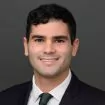On June 23, 2023, in United States v. Hansen, the United States Supreme Court rejected a First Amendment overbreadth challenge to 8 U.S.C. §1324(a)(1)(A)(iv) ("clause (iv)"), which forbids "encourag[ing] or induc[ing] an alien to come to, enter, or reside in the United States" if one knows or recklessly disregards the fact that such entry would violate the law.1 In so holding, the Court interpreted the scope of the criminal statute narrowly - concluding that the terms "encourage" and "induce" were used as terms of art in the statute and referred solely to criminal solicitation and facilitation. As a result, the Court held that, when read narrowly, the statute does not prohibit a substantial amount of constitutionally-protected speech and was not legally overbroad. While the Court did not eliminate the First Amendment overbreadth doctrine altogether - as some commentators had predicted2 - the Court's decision, and Justice Thomas's concurrence in particular, demonstrate the continued erosion of the overbreadth doctrine and signal that it may be on its final legs.
I. Factual and Procedural Background
Helaman Hansen promised hundreds of noncitizens that they could inherit U.S. citizenship if adopted by a U.S. citizen through a program he called "adult adoption." There exists no such path to citizenship, and Hansen accumulated almost $2 million from the 450-plus noncitizens that were duped into participating. The United States charged Hansen with mail and wire fraud and violating clause (iv).
On December 18, 2017, following a jury trial in the United States District Court for the Eastern District of California, Hansen was convicted of violating clause (iv).3 Post-conviction, Hansen moved to dismiss the government's clause (iv) charge on First Amendment overbreadth grounds. The district court denied Hansen's motion,4 and Hansen appealed to the United States Court of Appeals for the Ninth Circuit.
During the pendency of Hansen's appeal, the Ninth Circuit decided United States v. Sineneng-Smith. 5 In that case, the Ninth Circuit sua sponte raised the issue of clause (iv)'s overbreadth and held, in December 2018, that clause (iv) was an unconstitutionally overbroad restriction of speech.6 The Supreme Court vacated that judgment in May 2020,7 finding that the Ninth Circuit had abused its discretion by "inject[ing] the overbreadth issue into the appeal and appointing amici to argue it."8 According to the Supreme Court, the Ninth Circuit had "departed so drastically from the principle of party presentation" (the notion that courts rely on the parties to formulate the issues in a case) as to "constitute an abuse of discretion."9 In December 2020, on remand, the Ninth Circuit affirmed Sineng-Smith's clause (iv) convictions.10
Hansen's appeal, therefore, presented the Ninth Circuit with another opportunity to consider the constitutionality of clause (iv) under the First Amendment overbreadth doctrine. In deciding that issue, the Ninth Circuit focused on whether clause (iv) narrowly covers only the solicitation and facilitation of illegal conduct or, as was Hansen's view, more broadly covers constitutionally-protected "statements or conduct that are likely repeated countless times across the country every day."11 In February 2022, the Ninth Circuit sided with Hansen, applying "the overbreadth doctrine so that legitimate speech relating to immigration law" - such as advising an undocumented immigrant about social services - would not be "chilled and foreclosed."12 The Ninth Circuit denied the government's petition for rehearing en banc, and the Supreme Court granted certiorari in December 2022.13
Click here to continue reading . . .
Footnotes
1. No. 22-179, 2023 WL 4138994 (U.S. June 23, 2023).
2. See, e.g., Amanda Shanor, Justices divided on the constitutionality of the federal law that bans "encouraging" immigrants to remain unlawfully in the United States, SCOTUSBLOG (Mar. 28, 2023), https://www.scotusblog.com/2023/03/justices-divided-on-the-constitutionality-of-the-federal-law-that-bans-encouraging-immigrants-to-remain-unlawfully-in-the-united-states/ ("The newly reconfigured Court appears less strongly speech-protective than its recent predecessors - and perhaps interested in making big moves to constrain or even do away with the overbreadth doctrine.").
3. United States v. Hansen, 2017 WL 7037306, at *1 (E.D. Cal. Dec. 18, 2017).
4. See Transcript of Proceeding Re: Motion to Dismiss Counts 17 & 18, Judgment and Sentencing at 8, United States v. Hansen, No. 16-cr-24, ECF 200 (E.D. Cal. Feb. 8, 2018).
5. 910 F.3d 461 (9th Cir. 2018), vacated and remanded sub nom., United States v. Sineneng-Smith, 140 S. Ct. 1575 (2020).
6. Id. at 485
7. Sineneng-Smith, 140 S. Ct. 1575.
8. Hansen, 2023 WL 4138994, at *4.
9. Sineneng-Smith, 140 S. Ct. at 1578.
10. United States v. Sineneng-Smith, 982 F.3d 766, 770 (9th Cir. 2020).
11. United States v. Hansen, 25 F.4th 1103, 1110 (9th Cir. 2022), cert. granted, 143 S. Ct. 555 (2022), and rev'd and remanded, 2023 WL 4138994 (U.S. June 23, 2023).
12. Id. at 1110-11.
13. Hansen, 143 S. Ct. 555.
To subscribe to Cahill Publications Click Here
The content of this article is intended to provide a general guide to the subject matter. Specialist advice should be sought about your specific circumstances.



